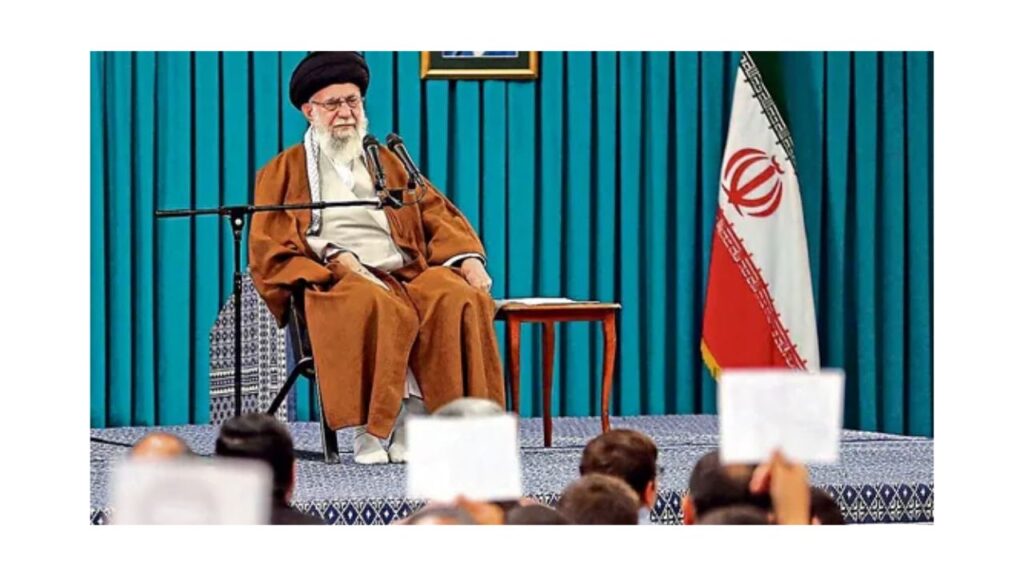Amidst widespread dissatisfaction and instability in the region, Raisi’s passing upends Iran’s political landscape and makes the succession process more difficult.
Ebrahim Raisi, the president of Iran, passed away on Sunday in a helicopter accident in a secluded region in northwest Iran.
He was accompanied by the governor general of the province of Eastern Azerbaijan, where the crash occurred, the Supreme Leader’s envoy in Tabriz, and Iran’s Foreign Minister Hossein Amir Abdollahian.
Since the Islamic Revolution in 1979, Raisi is the second Iranian president to pass away while in office. The first was the 1981 assassination of Mohammad Ali Rajaei by the militant Mujahedeen-e-Khalq Organization, which broke away from the revolution. However, the two fatalities occur under radically dissimilar circumstances.
Ayatollah Ali Khamenei, the country’s supreme leader, has the last word on all significant issues under Iranian law. Raisi, 63, who had been assiduously nurtured to greater office, looked to be one of the leading candidates to succeed 85-year-old Khamenei. The passing of Raisi creates an opening for other possible candidates at a time when Iran is grappling with dire issues such as economic hardships, domestic discord, and escalating hostilities with its arch-enemy, Israel.
The second son of Khamenei and a close aide, Mojtaba Khamenei, has long been seen as the front-runner to succeed him. Alireza Arafi, a well-known member of the Assembly of Experts, which ostensibly selects the leader, is an additional option.
Ahmad Alam-ol-Hoda, Raisi’s father-in-law, also comes to mind. Alam-ol-Hoda is a prominent politician in the eastern city of Mashhad and the provincial representative of the Supreme Leader in Khorasan Razavi. Jamileh Alam-ol-Hoda, the daughter of Alam-ol-Hoda and the widow of Raisi, is reported to have desired to be the First Lady of Iran, although that would have only been possible if her husband had taken office. Since October 2023, when she introduced the term “First Lady” into the political discourse of the Islamic Republic, she has been an advocate for the title. Maybe “First Daughter” would have to do for her.
Ahmad Khatami, a member of the Assembly of Experts’ presidium, is another influential person. Similar to Raisi, Khatami is a hardliner who was added to the European Union’s list of people under sanctions for “inciting violence against protesters” and “demanding the death penalty” for individuals who participated in the demonstrations after Mahsa Amini passed away in police detention in 2022. In addition, Khatami is a part of the Guardian Council, an organization that evaluates applicants for president and other elected positions. Iran’s Constitution mandates that fresh presidential elections take place in 50 days.
The arrangements for the seating of a new Assembly of Experts, selected through recent elections, are thrown off by Raisi’s passing. This week was meant to mark the new Assembly’s convocation and election of the presidium’s new leader. As the top candidate for the position, Raisi—who had previously served as the deputy head of the presidium—would have had the authority to accept or reject the Assembly’s selection of Khamenei’s successor. It will now be necessary to hold an election in the province of South Khorasan to select Raisi’s successor.
Additionally, Iran will have to choose a new president during a period of historically low voter turnout in recent elections.
As per Article 131 of the Iranian Constitution, Vice President Mohammad Mokhber Dezfouli would assume temporary leadership of the Executive branch.
A new presidential election must be scheduled within a maximum of 50 days by a council made up of the First Vice President, the Speaker of the Parliament, and the Chief of the Judiciary.
Mokhber, who has managed significant financial conglomerates in Iran, is probably going to run for president with the perennial contender, the speaker of parliament at the moment, Mohammad Baqer Qalibaf.
Former Tehran mayor and commander of the Islamic Revolutionary Guard Corps’ (IRGC) Air Force Qalibaf lost his first attempt at running for president in 2005 and went on to lose three more times. Although Qalibaf is seen as a somewhat moderate, it is unknown if he will succeed this time. It’s also expected that the parliament’s speaker will succeed him.
Iran’s permissible political spectrum has narrowed increasingly under Khamenei’s leadership. The public’s morale is at an all-time low, and the next presidential elections are probably not going to be very competitive. To entice Iranians who have lost faith in the establishment to the poll, the system might attempt to include some reformist individuals. Es’haq Jahangiri, Hassan Rouhani’s vice president before Raisi, is one candidate.
In an attempt to distinguish himself from Rouhani, Jahangiri has claimed that during the latter’s second term (2017–2021), he was deprived of his authority. This may increase Jahangiri’s likelihood of passing the Guardian Council’s screening process. But Jahangari is not very popular with regular Iranians.
The council does not have much time to screen candidates because of the short notice period before elections. As a result, we’re probably going to see some well-known individuals that have already undergone screening.
With Raisi dead and a new president in office, will the Iranian people’s circumstances drastically change? No, is the succinct response. It is expected that the current hardline philosophy in foreign and domestic policy will continue.
